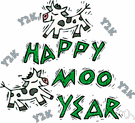pun
Also found in: Thesaurus, Medical, Acronyms, Idioms, Encyclopedia, Wikipedia.
pun
(pŭn)n.
A play on words, sometimes on different senses of the same word and sometimes on the similar sense or sound of different words.
intr.v. punned, pun·ning, puns
To make puns or a pun.
[Origin unknown.]
pun′ning·ly adv.
American Heritage® Dictionary of the English Language, Fifth Edition. Copyright © 2016 by Houghton Mifflin Harcourt Publishing Company. Published by Houghton Mifflin Harcourt Publishing Company. All rights reserved.
pun
(pʌn)n
(Literary & Literary Critical Terms) the use of words or phrases to exploit ambiguities and innuendoes in their meaning, usually for humorous effect; a play on words. An example is: "Ben Battle was a soldier bold, And used to war's alarms: But a cannonball took off his legs, So he laid down his arms." (Thomas Hood)
vb, puns, punning or punned
(Literary & Literary Critical Terms) (intr) to make puns
[C17: possibly from Italian puntiglio point of detail, wordplay; see punctilio]
pun
(pʌn)vb, puns, punning or punned
(Building) (tr) Brit to pack (earth, rubble, etc) by pounding
[C16: dialectal variant of pound1]
ˈpunner n
Collins English Dictionary – Complete and Unabridged, 12th Edition 2014 © HarperCollins Publishers 1991, 1994, 1998, 2000, 2003, 2006, 2007, 2009, 2011, 2014
pun
(pʌn)n., v. punned, pun•ning. n.
1. the humorous use of a word or phrase so as to emphasize or suggest its different meanings or applications, or the use of words that are alike or nearly alike in sound but different in meaning; a play on words.
2. a word or phrase used in this way.
v.i. 3. to make puns.
[1655–65; perhaps identical with pun, variant, now dial., of pound1, i.e., to mistreat (words)]
Random House Kernerman Webster's College Dictionary, © 2010 K Dictionaries Ltd. Copyright 2005, 1997, 1991 by Random House, Inc. All rights reserved.
pun
Past participle: punned
Gerund: punning
| Imperative |
|---|
| pun |
| pun |
Collins English Verb Tables © HarperCollins Publishers 2011
pun
Comic play on words which sound similar but differ in meaning.
Dictionary of Unfamiliar Words by Diagram Group Copyright © 2008 by Diagram Visual Information Limited
ThesaurusAntonymsRelated WordsSynonymsLegend:
Switch to new thesaurus
| Noun | 1. |  pun - a humorous play on words; "I do it for the pun of it"; "his constant punning irritated her" pun - a humorous play on words; "I do it for the pun of it"; "his constant punning irritated her" |
| Verb | 1. | pun - make a play on words; "Japanese like to pun--their language is well suited to punning" |
Based on WordNet 3.0, Farlex clipart collection. © 2003-2012 Princeton University, Farlex Inc.
pun
noun play on words, quip, double entendre, witticism, paronomasia (Rhetoric), equivoque The title of the book is a pun on his name.
Quotations
"A man who could make so vile a pun would not scruple to pick a pocket" [John Dennis]
"A man who could make so vile a pun would not scruple to pick a pocket" [John Dennis]
Collins Thesaurus of the English Language – Complete and Unabridged 2nd Edition. 2002 © HarperCollins Publishers 1995, 2002
Translations
تَوْرِيَه، تَلاعُب جِناسي بالألْفاظيَتلاعَب بالألْفاظ
slovní hříčkadělat slovní hříčky
ordspillave ordspil
تجنیس
sanaleikki
szójátékszójátékot csinál
leika sér aî merkingu orîaorîaleikur
駄洒落
kalambūrassakyti kalambūrus
kalambūrs, vārdu spēlelietot kalambūru
gra słówkalambur
calamburjoc de cuvinte
robiť slovné hračkyslovná hračka
ordvits
cinascinas yapmakkelime oyunu
Collins English/French Electronic Resource. © HarperCollins Publishers 2005
Collins German Dictionary – Complete and Unabridged 7th Edition 2005. © William Collins Sons & Co. Ltd. 1980 © HarperCollins Publishers 1991, 1997, 1999, 2004, 2005, 2007
Collins Italian Dictionary 1st Edition © HarperCollins Publishers 1995
pun
(pan) noun a type of joke in which words are used that have a similar sound, but a different meaning. One example of a pun would be `A pun is a punishable offence'.
verb – past tense, past participle punned – to make a pun.
Kernerman English Multilingual Dictionary © 2006-2013 K Dictionaries Ltd.